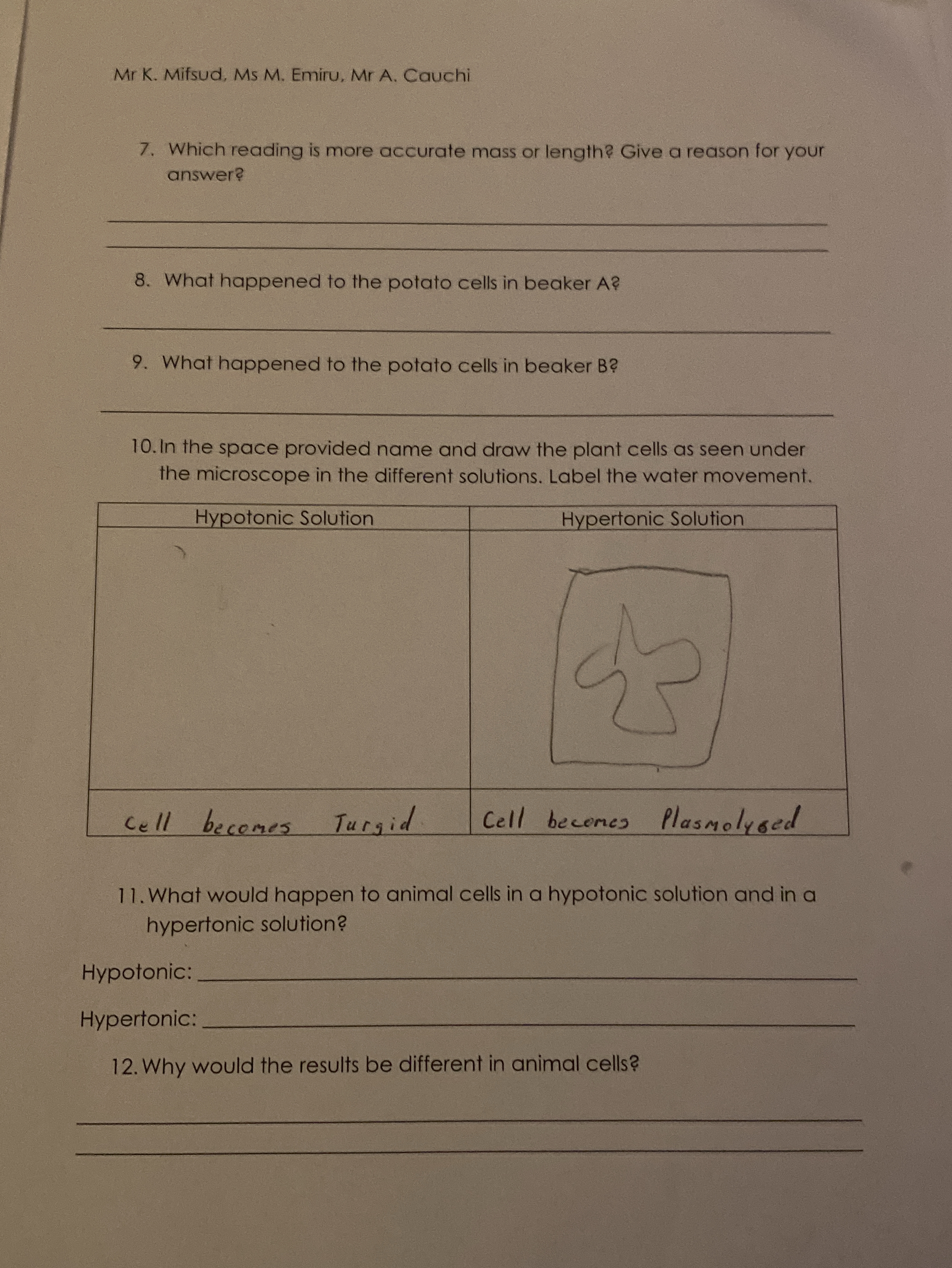What happened to the potato cells in beaker A? What happened to the potato cells in beaker B? What would happen to animal cells in a hypotonic solution and in a hypertonic solution... What happened to the potato cells in beaker A? What happened to the potato cells in beaker B? What would happen to animal cells in a hypotonic solution and in a hypertonic solution? Why would the results be different in animal cells?

Understand the Problem
The questions are related to an experiment with potato cells in different solutions and the effects of these solutions on animal cells, focusing on concepts of osmosis and cell behavior in hypotonic and hypertonic environments.
Answer
Beaker A: Turgid; Beaker B: Plasmolyzed. Animal cells burst in hypotonic, shrivel in hypertonic due to lack of cell wall.
The potato cells in beaker A likely became turgid due to a hypotonic solution, while those in beaker B became plasmolyzed due to a hypertonic solution. In a hypotonic solution, animal cells can burst as they lack a cell wall, unlike plant cells which become turgid. In a hypertonic solution, animal cells shrivel. The results differ because animal cells lack a rigid cell wall that provides structural support.
Answer for screen readers
The potato cells in beaker A likely became turgid due to a hypotonic solution, while those in beaker B became plasmolyzed due to a hypertonic solution. In a hypotonic solution, animal cells can burst as they lack a cell wall, unlike plant cells which become turgid. In a hypertonic solution, animal cells shrivel. The results differ because animal cells lack a rigid cell wall that provides structural support.
More Information
Plant cells have a rigid cell wall that prevents them from bursting in hypotonic solutions. This is why they only become turgid, unlike animal cells.
Tips
A common mistake is not considering the cell wall's impact on plant cell behavior in different solutions.
Sources
- Tonicity: hypertonic, isotonic & hypotonic solutions - khanacademy.org
- Osmosis - Biology LibreTexts - bio.libretexts.org
AI-generated content may contain errors. Please verify critical information